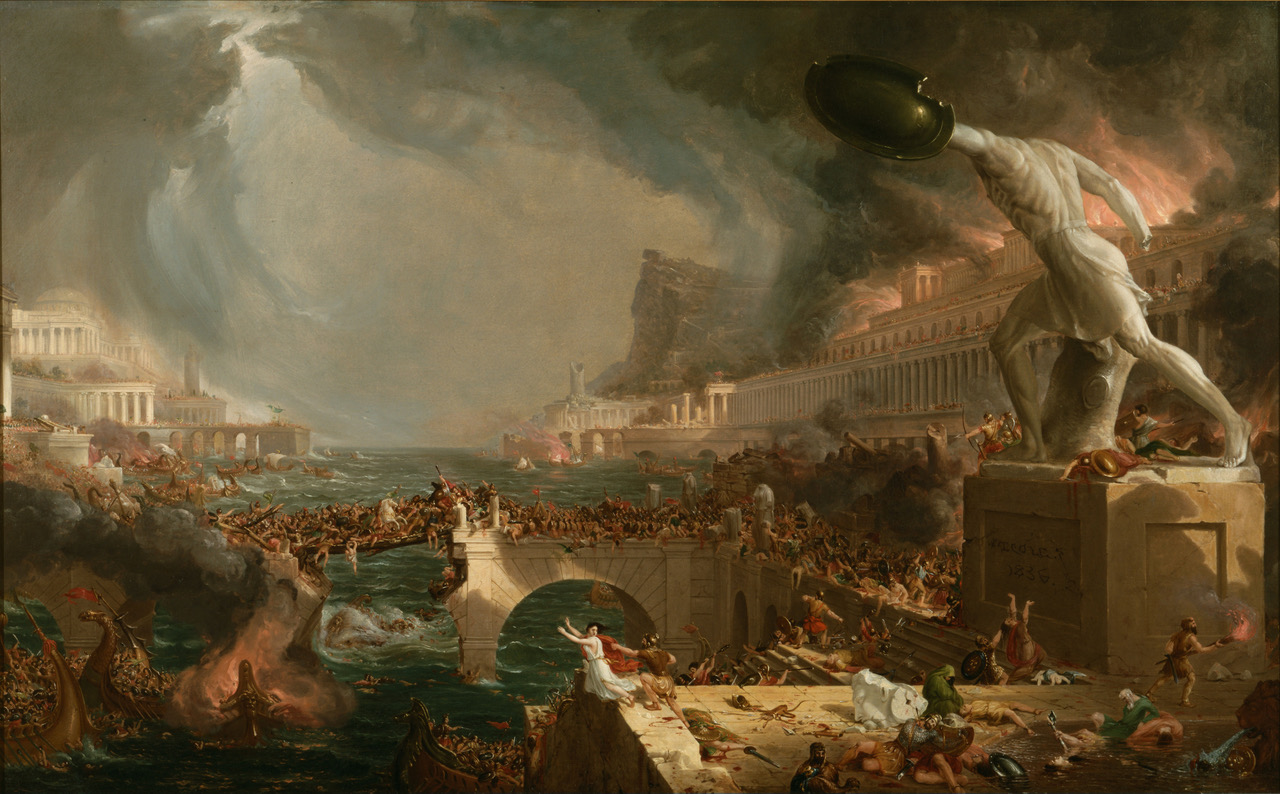
Sponsored by: The American Research Center in Egypt (ARCE), Pennsylvania Chapter (ARCE-PA)

In-person lecture
Saturday, September 21 at 3:30 pm EST
Penn Museum, Rainey Auditorium
In collaboration with the Dept. of Art and Archaeology of the Mediterranean World, UPenn
A short reception will follow the lecture
Speaker: Dr. Eric Cline
Lecture Topic: 1177 BC and After: The Collapse and Survival of Civilizations
Abstract:
For more than three hundred years during the Late Bronze Age, from about 1500 BC to 1200 BC, the Mediterranean region played host to a complex international world in which Egyptians, Mycenaeans, Minoans, Hittites, Assyrians, Babylonians, Cypriots, and Canaanites all interacted, creating a cosmopolitan and globalized world-system such as has only rarely been seen before the current day. It may have been this very internationalism that contributed to the apocalyptic disaster that ended the Bronze Age. When the end came, as it did after centuries of cultural and technological evolution, the civilized and international world of the Mediterranean regions came to a dramatic halt in a vast area stretching from Greece and Italy in the west to Egypt, Canaan, and Mesopotamia in the east. Large empires and small kingdoms, that had taken centuries to evolve, collapsed rapidly.
While the centuries following the Late Bronze Age Collapse in the Aegean and Eastern Mediterranean were a time of catastrophe, they were also a time of rebirth and resilience — it was less of a Dark Age and more of a reboot for many of the societies which were affected. While there are examples of failure to thrive or even to survive in some cases, others managed to adapt and transform. In effect, we have eight case studies of what to do (and what not to do) in the event of a systems collapse, ranging from the Assyrians to the Egyptians to the Mycenaeans and others in between. We will focus on the people and places that emerged from the ashes, highlighting some of the events and developments that took place in Greece, Egypt, Mesopotamia, Anatolia, and the Levant. We will also consider whether there are any relevant lessons to be learned from this dramatic story of resurgence and revival, especially considering what is going on in our world today.
Speaker Bio:
Eric H. Cline is Professor of Classics, History, and Anthropology, the former Chair of the Department of Classical and Near Eastern Languages and Civilizations, and the current Director of the Capitol Archaeological Institute at George Washington University, in Washington DC. A National Geographic Explorer, NEH Public Scholar, Getty Scholar, and Fulbright Scholar with degrees from Dartmouth, Yale, and the University of Pennsylvania, he is an active field archaeologist with more than 30 seasons of excavation and survey experience in Israel, Egypt, Jordan, Cyprus, Greece, Crete, and the United States, including ten seasons at Megiddo (1994-2014), where he served as co-director before retiring from the project in 2014, and another ten seasons at Tel Kabri, where he currently serves as Co-Director. He is the author or editor of 20 books and nearly 100 articles; translations of his books have appeared in nineteen different languages. Among them are Three Stones Make a Wall: The Story of Archaeology; Digging Deeper: How Archaeology Works; 1177 BC: The Year Civilization Collapsed and (with Glynnis Fawkes) 1177 BC: A Graphic History of the Year Civilization Collapsed; and After 1177 BC: The Survival of Civilizations (all Princeton). He is a member of the Washington DC chapter of ARCE.
***************************
Registration is NOT required. Lectures are FREE to ARCE Members, $7 for University of Pennsylvania Museum Members and UPenn Staff and Faculty, $5 for Students with ID, and $10 for the general public.
Light refreshments served starting at 3pm.
****************************
The American Research Center in Egypt (ARCE) is a private, nonprofit organization founded in 1948 by a consortium of educational and cultural institutions to support research on all aspects of Egyptian history and culture, foster broader knowledge among the general public, and strengthen American-Egyptian cultural ties. The ARCE Pennsylvania Chapter (ARCE-PA) is the local branch of the national institution. We host monthly events including scholarly lectures, Egyptian-themed workshops, social events, and guided tours of the Penn Museum’s Egyptian galleries. For more information or to learn about the perks of membership, please send an e-mail to info@arce-pa.org, or visit our website at www.arce-pa.org.
Notifications